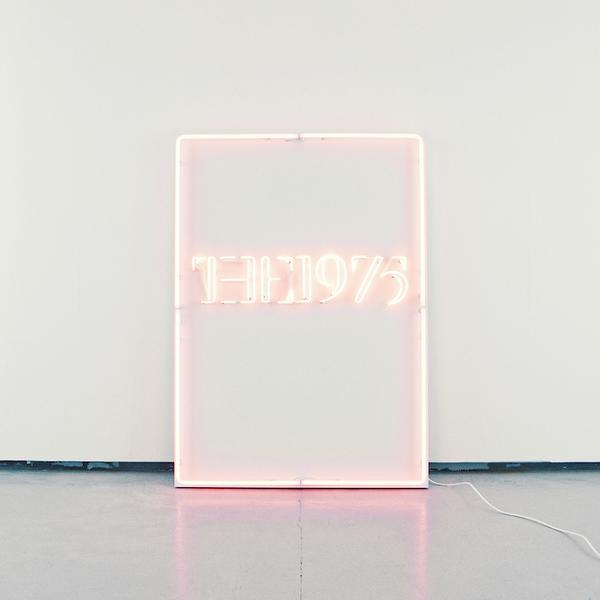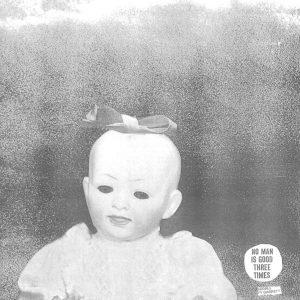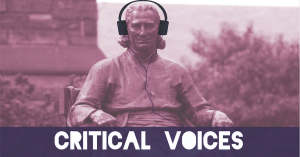Last June, all of The 1975’s social media accounts dramatically disappeared for 24 hours. The move resulted in a mini frenzy among loyal fans, who anxiously speculated what was happening. What emerged after the blackout was a color scheme change, a 180 degree shift from the classic black and white vibe of their first album to an electric pink and white, ‘80s inspired aesthetic.

The 1975
While the strategy may have been a tad gimmicky, the shift reflected The 1975’s new direction in their online buildup to I Like It When You Sleep, For You Are So Beautiful Yet So Unaware Of It, their sophomore album, released on Feb. 26. The album title, while wordier than most, reflects the stream of consciousness present throughout the British group’s record.
Fronted by Matt Healy (vocals) and Adam Hann (guitar), The 1975 sought to live up to the popularity of their 2013 debut self-titled album, which found success with the hits “Chocolate” and “Girls.” While technically an alt-rock group, the band branches out to experiment with many genres in I Like It When You Sleep. In addition to their traditional upbeat alt-rock sound, The 1975 dabbles in some slower, emotion fueled electronic pieces, an acoustic song or two, and even some ‘80s inspired funk.
The record begins with “The 1975,” the exact same dramatic, slow building electronic song that started off their first album. It’s both wistful and emotional, preparing listeners for the journey to come while giving a little nod to fans of their debut record. The song slowly crescendos and, just before it hits its climax, cuts off and plunges into “Love Me,” a danceable ‘80s inspired funky piece that criticizes the inauthenticity and shallowness of celebrity culture (“She’s got a beautiful face but nothing to say”), perhaps in response to The 1975’s personal experience with rising fame and attention.
The album continues with “UGH!,” a bouncy, staccato tune about cocaine. Drug use is a common theme throughout The 1975’s songs, which Healy often sings about with a mix of anxiety, angst, and pleasure. “UGH!” concludes with Healy belting, “I’m not giving it up again,” over and over again. “She’s American” returns The 1975 to their alt-rock roots. The group is arguably most comfortable in this genre, and it shows. The effortlessly catchy song, reminiscent of their first album’s hit “Girls,” is a shout out to their American lovers, with clever cultural lines, like “If she says I gotta fix my teeth then she’s so American.”
The album flows into slightly hazier territory with the next three songs, “If I Believe You,” “Please Be Naked,” and “Lostmyhead.” “If I Believe You” is a slow, electronic-jazz ballad featuring a sax solo in which Healy sings wistfully about love, loneliness, and religion, while “Please Be Naked” is a purely instrumental piece featuring piano and some well-produced electronic noises that could be used in a meditation studio. Likewise, “Lostmyhead” is a cathartic, slow pop-electronic tune that gradually builds in sound, but its defining feature is its nod to “Facedown,” a track off of their first album.
Careful listeners of both albums will recognize the parallel—while the songs contain different electronic sounds, they include a similar set of lyrics about losing one’s head sung in the same tune. Both songs reflect The 1975’s focus on mental illness as a defining theme in their music. All three songs are good, but they don’t pack quite the punch that we know the band is capable of and ultimately act mostly as transitional pieces.
“The Ballad of Me and My Brain,” a louder, alt-rock piece, continues with the theme of mental health, as Healy recklessly belts out that he’s worried he’s losing his brain. The song physically sounds like someone spiraling out of control, in contrast to “Somebody Else” and “Loving Someone,” songs that return to a more delicate, emotional view of love. “Instead of selling sex,” Healy belts out in the latter, only to be cut off by his own electronic vocals, “I think I should be loving someone.” Both songs take a break from the sex and drug-infused world of The 1975’s louder pieces to pause for some refreshing vulnerability.
The title track, “I Like It When You Sleep, For You Are So Beautiful Yet So Unaware Of It,” is surprisingly reminiscent of Owl City’s lighthearted electronic sound. The slow song transitions into one of the bouncy headline tracks, “The Sound,” which the group recently performed on Saturday Night Live and will likely get some radio play. The upbeat, alt-pop song is easy to sing along to and will be a highlight of The 1975’s live repertoire when they go on tour this spring.
Likewise, “This Must Be My Dream” is an uplifting alternative anthem, interspersed with pleasant touches of jazz. “Paris” exhibits The 1975’s stunning ability to juxtapose a carefree, catchy tune with darker lyrics that explore drug use and self harm. The album concludes with “Nana” and “She Lays Down,” two soft, raw acoustic pieces that show off Healy’s vocal vulnerability as he sings painfully, “And in the end, she chose cocaine / But it couldn’t fix her brain” in the latter song.
I Like It When You Sleep, For You Are So Beautiful Yet So Unaware Of It shows off the texture, depth, and emotion that The 1975 can pack into a single album. The 17-song record runs 75 minutes long, but, despite the length, the variety and seamless transitions make it worth listening to from top to bottom.
Voice’s Choices: “UGH!” and “The Sound”




